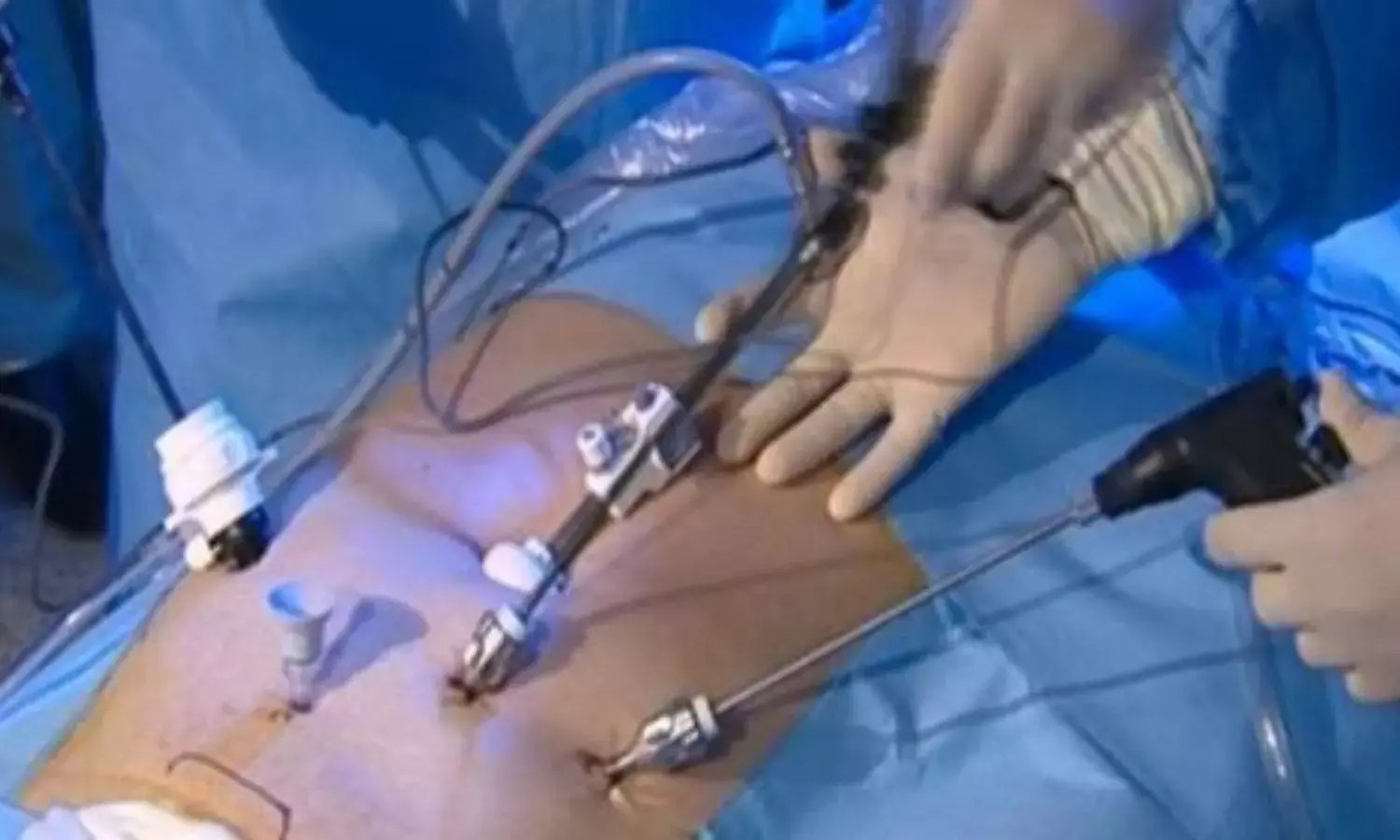- Home
- Medical news & Guidelines
- Anesthesiology
- Cardiology and CTVS
- Critical Care
- Dentistry
- Dermatology
- Diabetes and Endocrinology
- ENT
- Gastroenterology
- Medicine
- Nephrology
- Neurology
- Obstretics-Gynaecology
- Oncology
- Ophthalmology
- Orthopaedics
- Pediatrics-Neonatology
- Psychiatry
- Pulmonology
- Radiology
- Surgery
- Urology
- Laboratory Medicine
- Diet
- Nursing
- Paramedical
- Physiotherapy
- Health news
- Fact Check
- Bone Health Fact Check
- Brain Health Fact Check
- Cancer Related Fact Check
- Child Care Fact Check
- Dental and oral health fact check
- Diabetes and metabolic health fact check
- Diet and Nutrition Fact Check
- Eye and ENT Care Fact Check
- Fitness fact check
- Gut health fact check
- Heart health fact check
- Kidney health fact check
- Medical education fact check
- Men's health fact check
- Respiratory fact check
- Skin and hair care fact check
- Vaccine and Immunization fact check
- Women's health fact check
- AYUSH
- State News
- Andaman and Nicobar Islands
- Andhra Pradesh
- Arunachal Pradesh
- Assam
- Bihar
- Chandigarh
- Chattisgarh
- Dadra and Nagar Haveli
- Daman and Diu
- Delhi
- Goa
- Gujarat
- Haryana
- Himachal Pradesh
- Jammu & Kashmir
- Jharkhand
- Karnataka
- Kerala
- Ladakh
- Lakshadweep
- Madhya Pradesh
- Maharashtra
- Manipur
- Meghalaya
- Mizoram
- Nagaland
- Odisha
- Puducherry
- Punjab
- Rajasthan
- Sikkim
- Tamil Nadu
- Telangana
- Tripura
- Uttar Pradesh
- Uttrakhand
- West Bengal
- Medical Education
- Industry
Beta-blockers along with radical prostatectomy reduce risk of prostate cancer recurrence: JAMA

Oslo, Norway: In a new study conducted by Shivanthe Sivanesan and team, it was found that the perioperative use of nonselective beta-blockers (nsBBs) at the time of radical prostatectomy (RP) is related to less treatment initiation for cancer recurrence. The findings of this were published in the Journal of American Medical Association.
The perioperative phase has gained prominence as a window of opportunity for cancer recurrence prevention. The body of evidence supporting a role for nsBBs in cancer therapy is growing, and one of the proposed mechanisms of action is preventing cancer recurrence related to perioperative stress and catecholamine. The purpose of this study was to see if using nsBBs during radical prostatectomy is related to a decreased rate of therapy for prostate cancer recurrence.
This cohort analysis examined data from the Cancer Registry of Norway, the Norwegian Patient Registry, the Norwegian Prescription Database, and the Norwegian Cause of Death Registry that were obtained prospectively. This study included 11 117 treatment-naive patients with prostate cancer (ie, no prior hormonal therapy, radiotherapy, or chemotherapy) who underwent radical prostatectomy in Norway between January 1, 2008, and December 31, 2015, with a minimum progression-free follow-up of 6 months, out of 12 298 eligible patients. The data was analyzed between April 20, 2020, and April 30, 2021. The use of nsBBs and Selective Beta- Blockers (sBBs) at the time of radical prostatectomy was the source of the exposure. The primary outcome was treatment for cancer recurrence following radical prostatectomy (defined as the start of hormone therapy, radiation, or chemotherapy) or cancer-specific death if no treatment was found.
The research comprised 11 117 prostate cancer patients. During a median follow-up of 4.3 years, 1622 (14.6%) of individuals underwent therapy for cancer recurrence (IQR, 2.4-6.3 years).
Key findings of the study are as follows:
- Use of nsBBs at time of surgery among 209 patients was significantly associated with a lower risk of treatment for cancer recurrence (adjusted hazard ratio [aHR], 0.64).
- No such association was observed for use of sBBs (aHR, 0.96).
- Subanalyses with (1) relaxed inclusion criteria allowing for inclusion also of patients with early progression (within 6 months) and (2) only the healthiest patients (Eastern Cooperative Oncology Group performance status of 0) supported the main findings.
In conclusion, given the huge volume of RPs done, even a minor delay in the requirement for further hormonal treatment and radiation following surgery would support an interventional investigation to determine potential causation between nsBB usage and prostate cancer recurrence.
"Use of nsBB but not sBBs at the time of radical prostatectomy was associated with less treatment initiation for cancer recurrence," they wrote.
Reference:
Sivanesan S, Taskén KA, Grytli HH. Association of β-Blocker Use at Time of Radical Prostatectomy With Rate of Treatment for Prostate Cancer Recurrence. JAMA Netw Open. 2022;5(1):e2145230. doi:10.1001/jamanetworkopen.2021.45230
Medical Dialogues consists of a team of passionate medical/scientific writers, led by doctors and healthcare researchers. Our team efforts to bring you updated and timely news about the important happenings of the medical and healthcare sector. Our editorial team can be reached at editorial@medicaldialogues.in.
Dr Kamal Kant Kohli-MBBS, DTCD- a chest specialist with more than 30 years of practice and a flair for writing clinical articles, Dr Kamal Kant Kohli joined Medical Dialogues as a Chief Editor of Medical News. Besides writing articles, as an editor, he proofreads and verifies all the medical content published on Medical Dialogues including those coming from journals, studies,medical conferences,guidelines etc. Email: drkohli@medicaldialogues.in. Contact no. 011-43720751


